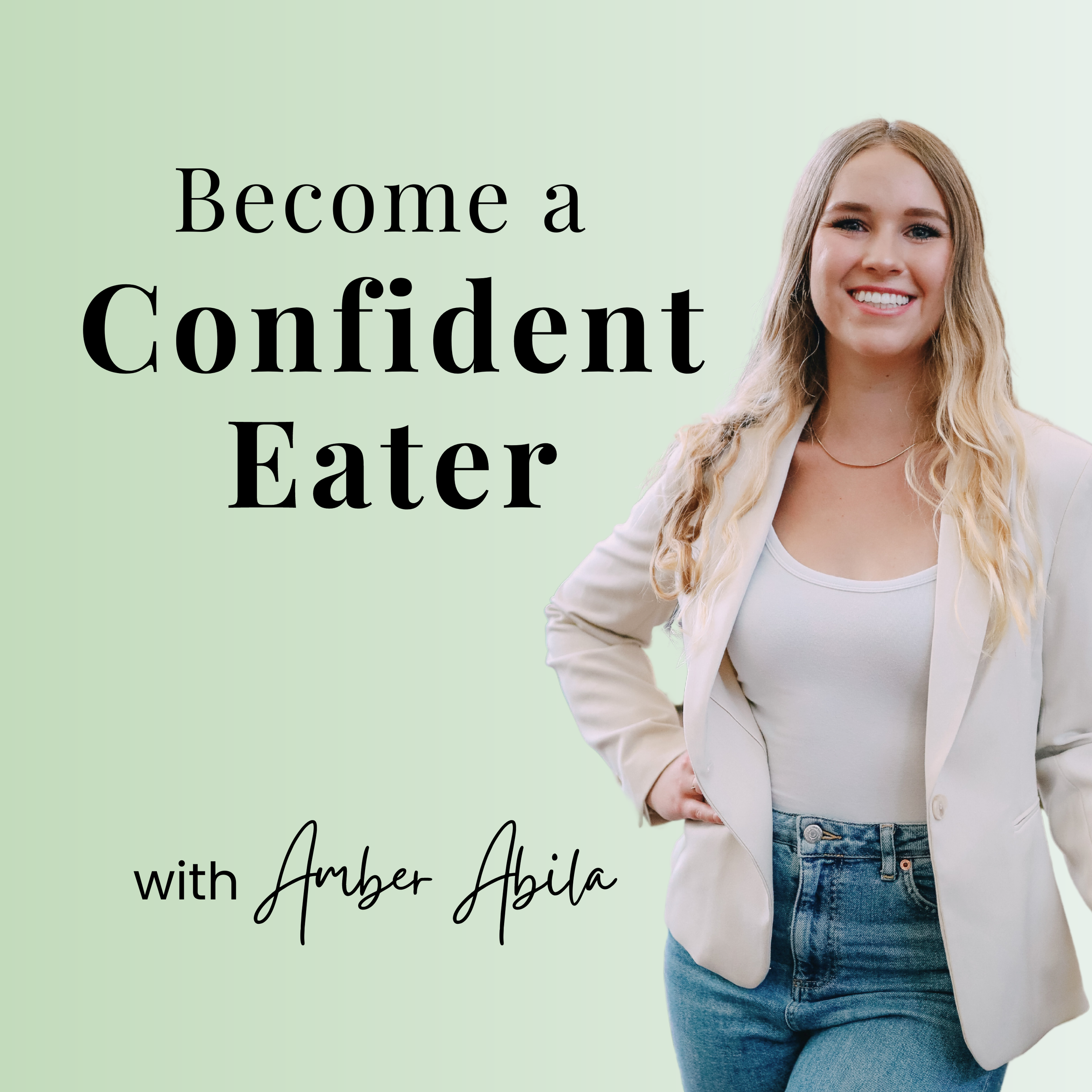Ep 79- How Decluttering Can Reduce Food Noise with Tracy Hoth
August 14, 2025
If your pantry is overflowing, your fridge feels chaotic, or you find yourself hoarding food “just in case”, this episode is for you. I sit down with professional organizer and mindset coach Tracy Hoth to explore how clutter and disorganization often mirror our relationship with food.
You’ll learn:
How visual clutter impacts food choices
The psychology behind overbuying & hoarding food
How to organize your pantry and fridge to reduce food noise
What to do with clothes that don’t fit anymore
Tracy’s 5-step framework for organizing anything — from your home to your to-do list
Tracy Hoth is a 17-year veteran professional organizer and certified life coach who is on a mission to help people free themselves from the weight of clutter. She is the host of the top 1% globally ranked Organized Coach Podcast where she makes organizing so simple you can't help but have fun along the way!
Why We Hoard Food and Stuff
We often overbuy because of the dopamine hit from a deal and because we are avoiding emotions. Bored, restless, or facing something hard, we bring things in. It sounds a lot like food. We get a hit, we tell ourselves we will not get it again, and we rush to get more. Diet culture can feed a scarcity mindset that says there is never enough, so we stock up and feel flooded.
Ask Why without Judgment
When people hold on to things, there is usually a belief underneath. Gifts feel tied to memories. We fear hurting feelings. We fear judgment. Keep asking why in a curious way. Why is it important I do not let this go. What am I believing here. Curiosity opens the door to new choices.
Functional Organization over Picture Perfect
Tracy calls herself functionally organized. Being organized means you know what you have and you can find it when you need it. You do not need matching containers or a color coded pantry. If it works and you can find it, it counts.
Set Up Your Pantry and Fridge to Quiet Food Noise
When you know what you have and where it lives, you stop digging and stop buying duplicates. Group by zones that make sense. Breakfast together. Cans together. Pasta together. Put the most used items where they are easy to reach.
If you keep a treat drawer labeled bad foods, that label can turn the drawer into a magnet. Try mixing items so your brain sees all foods as morally equal. Place chocolate near canned goods. Keep a list or small photos of snack options so your brain remembers an orange is also a snack. Our brains are visual. If baked goods on the counter call your name, store them in the cabinet so you are not thinking about them every time you walk by. It is not hiding. It is quieting noise.
The Silent To Do List and Visual Overload
Clutter yells at you even when it is quiet. Eat me. Do this. You have not done that. Visual clutter drains energy. Clearing surfaces, sorting the fridge, and simplifying shelves reduce the decisions you need to make, which lowers overwhelm and makes natural choices easier.
Clothes that Do Not Fit and Decision Fatigue
Bodies change. Closets fill with many sizes. Decisions get heavy. Tracy’s process starts with sort before deciding. Sort by size, category, or color. Then purge. Then assign homes. Try on, choose favorites, and make decisions with clarity. Keep the items that fit and feel good where you can grab them in a moment. Place different sizes you are keeping in a clearly labeled bin and put it away. Consider one small box of favorites for a different size. Prioritize what fits your body today.
A helpful mindset is to choose your favorites first and decide in advance how many jeans, shirts, or socks your organized self keeps. Travel questions help too. Would I take this on a long trip. Would I buy this again at full price.
Tracy’s Five Step Organizing Framework
Sort
Purge
Assign homes
Set limits
Maintain
Set limits by shelf, drawer, or container. Do not buy containers until you know exactly what stays and where it will live. Maintain by tying a quick reset to something you already do. When the limit is reached, you will know it is time to run the steps again.
Apply the Same Steps to Time and To Dos
Overwhelmed by tasks. Sort everything onto paper. Group by errands, calls, computer work, and a category for thoughts. Purge with the four Ds. Delegate, delay, delete, or do. Assign homes on your calendar and batch where you can. Your calendar blocks become the limits. Maintain by reviewing nightly or weekly.
One powerful habit is the wonderful one. Keep one place for everything you capture. A single notebook, a clipboard, or a digital list. Process it into calendar or task lists, then toss the scraps. Your mind rests when it trusts the one place.
Skills You Can Learn
Organization is a skill. Natural eating is a skill. Both become habits you practice. Create space in your home, your calendar, and your body. When there is space, shoulders drop, breath deepens, and choices feel lighter.
You can find Tracy at Simply Squared Away and on the Organized Coach Podcast where we talked about food and business and how they relate.
Ready to Create Space and Reduce Food Noise
If you are clearing your counters and your calendar to feel calmer with food, the next step is learning how to quiet the noise inside too. In the Confident Eater Program I teach you simple tools to handle urges, eat the foods you love without rebound restriction, and rebuild self trust so your kitchen and your mind both feel organized and peaceful. If you want practical support to become a confident, natural eater, I am here for you.
